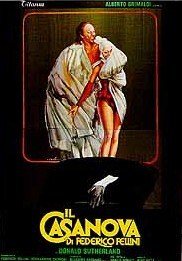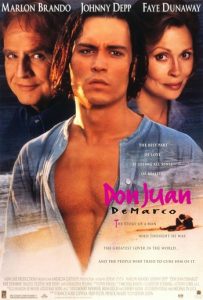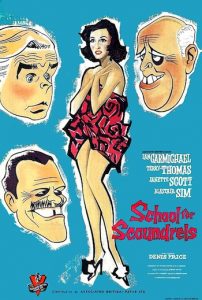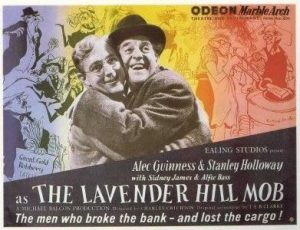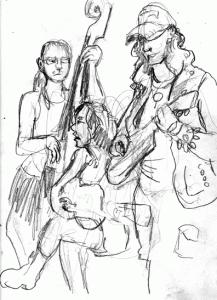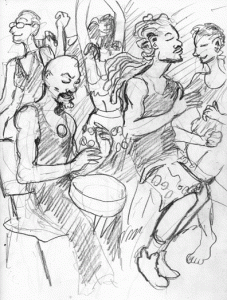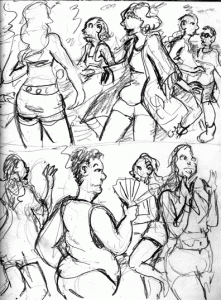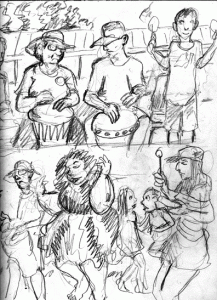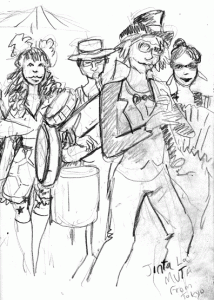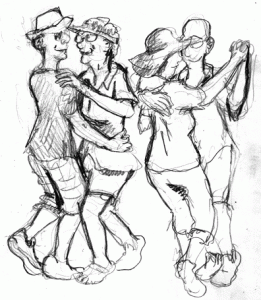Well, I’m back and back to watching my weekly selection and decided to dip once again into World War Two, and to keep things interesting I thought I’d focus on the Pacific Theater.
 While I’d been aware of my first film, Tora! Tora! Tora! , directed by Richard Fleischer, Toshio Masuda and Kinji Fukasaku for ages I was only reminded of it this month. The only thing I had remembered about it was that it was a joint American/Japanese endeavor with both sides getting equal time to tell their story. (I’d also heard Toshiro Mifune was in it, which is incorrect. He’s in the next one.)
While I’d been aware of my first film, Tora! Tora! Tora! , directed by Richard Fleischer, Toshio Masuda and Kinji Fukasaku for ages I was only reminded of it this month. The only thing I had remembered about it was that it was a joint American/Japanese endeavor with both sides getting equal time to tell their story. (I’d also heard Toshiro Mifune was in it, which is incorrect. He’s in the next one.)
Driven by the American fuel embargo against them for their invasion of Manchuria to take the desperate gamble of neutralizing the United States Pacific fleet by attacking its main base in Pearl Harbor in the island of Oahu. We are shown in great detail the Japanese methodical planning and preparations as well as the serious misgivings of newly appointed Commander-in-Chief of the Combined Fleet Admiral Isoroku Yamamoto.
Meanwhile, in Washington, military intelligence has cracked the Japanese code and is pouring over transcripts. They know the Japanese are planning something, they know roughly when it’s going to happen, and that is all.
In Pearl Harbor itself, it’s mostly business as usual with some efforts to improve defenses but will they get everything ready in time because the clock is ticking.
I honestly don’t understand why this film did so badly at the box office because it was amazing. The attention to detail was incredible with the historical mistakes being so minuscule they have to be pointed out to you by experts. (The main one being the Japanese squadrons flying over a cross on a nearby mountain. A cross that was a memorial to the bombing.
After that, you can sit back and marvel at the attack itself. Other than some models this isn’t special effects, folks. This is the work of incredibly talented stunt pilots.
The main complaint I hear is the pacing. For me, this worked great. (After all, nobody complains about a similar storytelling pace in Seven Samurai. ) In fact, by putting all of the facts down in what I can almost consider the first military procedural I’ve ever seen, It makes the race against the clock to what the inevitable event would be, the fact that Naval Intelligence NEARLY got the facts together in time even more shocking.
The other thing that’s amazing is the film is so even-handed, while you are justifiably horrified by the final attack, at the same time you share the Japanese frustration of not being able to use the second wave of planes because the aircraft carriers weren’t in port!
 Having started with the beginning of the Pacific Theater, I decided to finish with what was the beginning of the end of the end of the Pacific Theater with an all-star cast in Jack Smight’s Midway.
Having started with the beginning of the Pacific Theater, I decided to finish with what was the beginning of the end of the end of the Pacific Theater with an all-star cast in Jack Smight’s Midway.
Starting like Tora! Tora! Tora! we have the buildup before the war with Leader of the Japanese Forces, Admiral Yamamoto, played by Toshiro Mifune, prepares for a final push, While back in Pearl Harbor the American Navy tries desperately to decipher Japanese transcripts in time. Admiral Nimitz, played by Henry Fonda, suspects that their target is Midway, but hunches aren’t enough for Washington.
But that’s not all Captain Matthew Garth, played by Charlton Heston, has a problem. His son has fallen in love with a Japanese-American girl who’s just been arrested. Now he’s desperately trying to help as best he can before it’s too late.
This film started okay. I especially liked Hal Holbrook’s performance as code breaker Commander Rochefort (though from what I found out, fact-checking afterwards his performance was different enough from the real Rochefort, he might have well been a fictional character) For the most part everyone else gave perfectly competent performances they all looked like they were phoning it in. (Personally, I thought Toshiro Mifune was completely wasted as Yamamoto (though it might have just been him being dubbed that made his performance seem more wooden.)
The subplot with Garth and his son seemed just tacked on. My personal theory is that they wanted to add more drama with a variation of the girl back home cliche, and throwing in Japanese internment made it more historical.
As for the battle itself… O boy… I don’t like to judge films by special effects, and I understand just how much it would have cost to recreate the actual battle of Midway in the mid-seventies, but over forty-five minutes of historical footage is definitely not the way to do it. Even ignoring the problems with it cutting back and forth to pilots in their cockpits in front of blue screens only draws attention to how it doesn’t work. In the end, I found myself just wanting to say to myself… The Americans won you can fast forward to the end.






